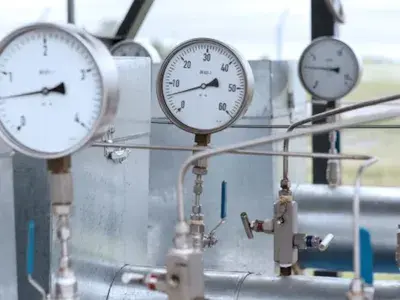The Comprehensive Case for Building Owners to Enroll in HVAC Maintenance Programs
In the dynamic landscape of commercial property ownership, where financial acumen and sustainability converge, embracing a strategic approach to HVAC maintenance is paramount. This comprehensive exploration delves into the multifaceted advantages, cost savings, and strategic implications that underscore the importance of building owners enrolling in HVAC maintenance programs.
1. Capital Investment Protection:
- Preserving the longevity of HVAC equipment through regular maintenance safeguards the substantial capital investment made in these systems.
- A proactive approach prevents premature wear and tear, reducing the likelihood of major equipment replacements and associated high costs.
2. Energy Efficiency and Cost Reduction:
- Well-maintained HVAC systems operate at peak efficiency, resulting in decreased energy consumption and subsequent utility cost savings.
- Consistent maintenance addresses inefficiencies promptly, contributing to a sustainable reduction in operational expenses over time.
3.  Tailored Solutions for Unique Needs:
Tailored Solutions for Unique Needs:
- HVAC maintenance programs offer customized plans, adapting to the specific needs of each building based on its size, usage patterns, and age.
- This tailored approach maximizes the effectiveness of maintenance efforts, ensuring optimal performance and longevity.
4. Regulatory Compliance Assurance:
- Many local regulations and industry standards mandate regular HVAC maintenance for commercial properties.
- Enrollment in maintenance programs guarantees compliance, shielding building owners from potential legal repercussions and fines.
5. Enhanced Indoor Environmental Quality (IEQ):
- Regular maintenance ensures clean air filters and optimal system functionality, contributing to improved Indoor Environmental Quality.
- Reduced allergens and pollutants not only create a healthier workspace but also mitigate potential liabilities related to occupant health concerns.
6. Proactive Issue Resolution:
- Maintenance programs focus on preventive measures, identifying and addressing potential issues before they escalate into costly and disruptive breakdowns.
- Proactive issue resolution minimizes downtime, ensuring uninterrupted business operations within the building.
7. Positive Tenant Experience and Retention:
- A consistently comfortable indoor environment resulting from well-maintained HVAC systems contributes to tenant satisfaction.
- Happy tenants are more likely to renew leases, minimizing turnover and enhancing the overall appeal of the property.
8. Adaptability to Changing Building Needs:
- HVAC maintenance programs can be adjusted to accommodate evolving building configurations, expansions, or renovations.
- This adaptability ensures that the HVAC system remains aligned with the changing needs of the building and its occupants.
9. Expertise Access and Technological Advancements:
- Maintenance programs provide access to experienced technicians well-versed in the latest HVAC technologies.
- Leveraging this expertise ensures that your building benefits from the most efficient and cutting-edge solutions available.
10. Environmental Responsibility and Reputation Enhancement:
- Well-maintained HVAC systems operate more sustainably, aligning with environmental responsibility goals.
- This commitment enhances the building's reputation, appealing to environmentally conscious tenants and stakeholders.
11. Insurance Premium Considerations:
- Demonstrating a commitment to HVAC maintenance may lead to considerations for lower insurance premiums.
- Insurance policies often take building maintenance into account, providing an additional financial incentive.
12. Proactive Budgeting and Financial Stability:
- Predictable, regular costs associated with HVAC maintenance programs facilitate proactive budgeting.
- Building owners can plan more effectively, contributing to financial stability and long-term financial planning.
In summation, the decision to enroll in HVAC maintenance programs transcends immediate financial considerations, offering building owners a strategic toolset for sustained success. From capital protection to environmental responsibility, these programs are instrumental in maximizing returns, ensuring sustainability, and positioning commercial properties as beacons of efficiency in an ever-evolving landscape.
Related Topics: HVAC Maintenance, Commercial HVAC, Sheet Metal Fabrication, Commercial Construction, Construction Services, Energy Efficient Construction
Browse Topics
- Pure News
- Construction Services
- General Contractor Services
- Sheet Metal Fabrication
- Commercial HVAC
- HVAC Maintenance
- Energy Efficient Construction
- Construction Safety
- Workforce Development
- Community & Urban Revitalization
- Minority Construction Contracts
- Minority Business Enterprise (MBE)
- Multi-Family Construction
- Affordable Housing Construction
- Municipal Construction
- Restaurant Construction
- Retail Construction
- Contractor & Subcontractor Training